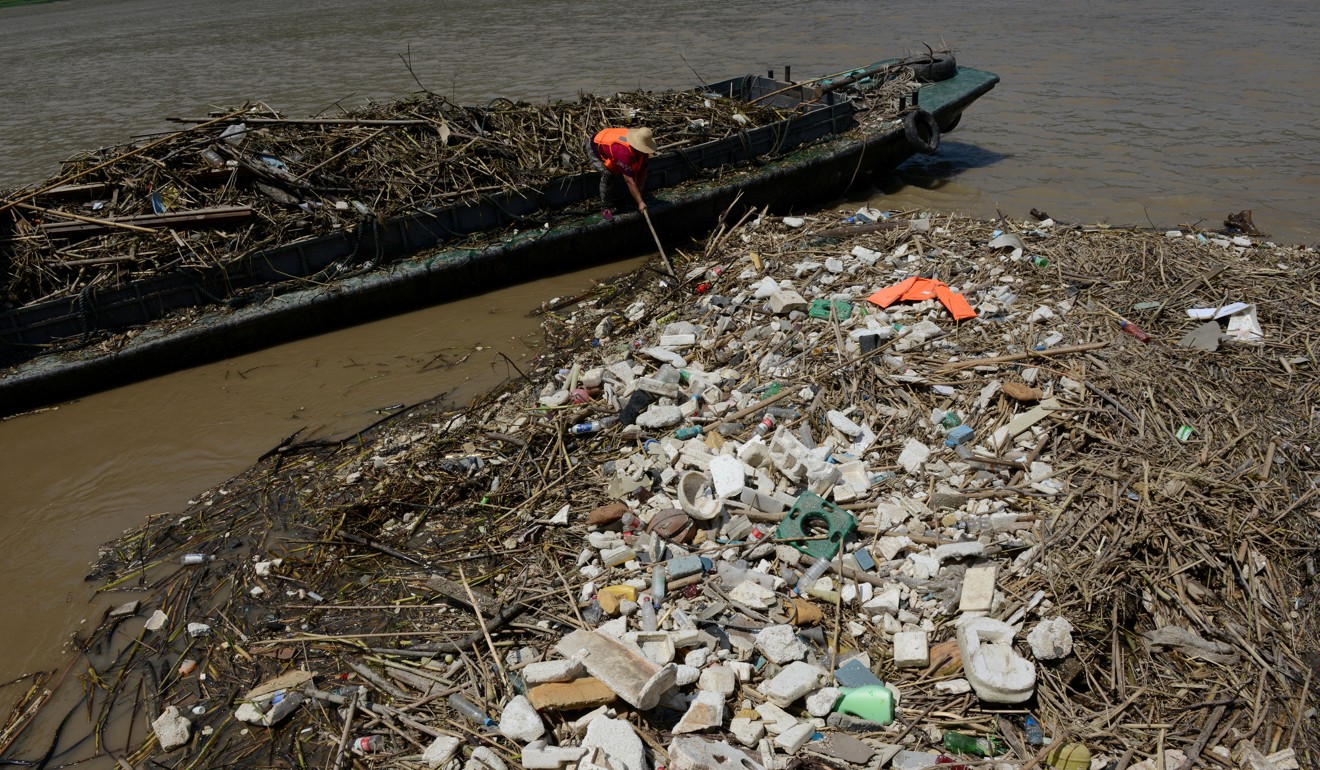
China needs US$147 billion to clean its urban rivers, environment ministry says
Local authorities have to build 400,000km of waste water pipelines to help treat pollution problem, official says
China will need more than 1 trillion yuan (US$147.4 billion) to build a massive network of waste water pipelines to reduce heavy pollution in urban rivers, the environment ministry said on Thursday.
China is running a high-profile anti-pollution drive designed to reverse the damage done to its skies, soil and water since it opened up its economy in 1978 and embarked on a programme of breakneck growth.
Under a national water pollution action plan published in 2015, China’s cities are under pressure to cut what authorities call “black and stinky water” to less than 10 per cent of rivers in urban areas by 2020.
Zhang Bo, director of the water department at the Ministry of Ecology and Environment, said local authorities needed to build another 400,000km (248,000 miles) of waste water pipelines to help treat the problem.
But with each kilometre costing 3 million yuan, governments needed to raise water treatment prices to cover it.

Speaking at a monthly news conference, Zhang said “it was hard to be optimistic” when it came to meeting targets. Financing problems and compliance failures at a local level had held back the clean-up programme, he said.
“Some local governments still believe improving the environmental situation will harm the economy, and they always complain they don’t have money to treat pollution,” Zhang said. “But they need to see that by improving the environment they can attract more property and other investments.”
The state uses the term “black and stinky water” as a generic term to describe heavily polluted and malodorous urban water. It has launched a mobile phone application to help the public get involved by reporting all instances to authorities.
The central government has already launched a campaign this year to name and shame authorities that fail to properly rectify incidents of pollution.
“Local governments that think they can pass inspections through last-minute [water] treatment can stop fantasising,” Zhang said. “We just want them to lose face.”
The environment ministry said on Wednesday that 70 per cent of groundwater samples tested in the first half of the year were fit for human use, up from 67.9 per cent for the whole of last year.
But the country’s water clean-up programme has been uneven, focusing mainly on better-off urban regions, and experts are concerned that rural areas are falling behind.

